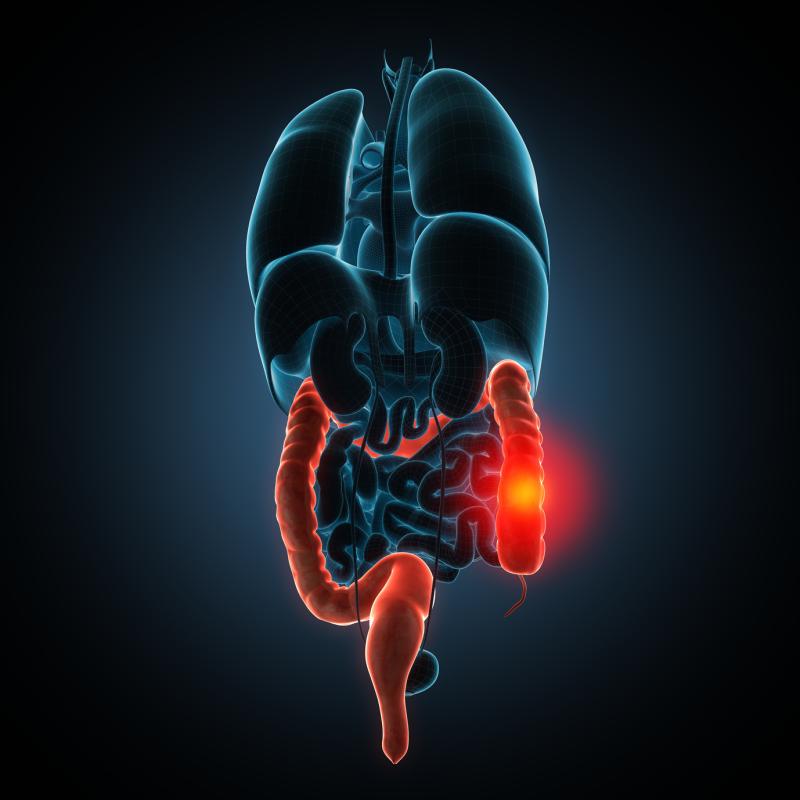
Treatment with ustekinumab has been shown to be effective for ulcerative colitis (UC) in a real-world setting, according to a recent study presented at the 2020 Crohn’s and Colitis Congress (CCC 2020).
“The efficacy of ustekinumab in the UNIFI trial translated to our real-world population, despite higher rates of prior biologic failure with tumour necrosis factor (TNF) antagonists and vedolizumab in our cohort,” the researchers said.
UNIFI was a recent randomized controlled trial, which demonstrated the efficacy of ustekinumab in patients with moderate-to-severe UC. [N Engl J Med 2019;381:1201-1214]
Nineteen patients with moderate-to-severe UC (mean age, 42.7±17.0 years) were treated with ustekinumab, among whom 47.4 percent were male and 47.4 percent had disease limited to the left colon. The mean total Mayo score was 7.6±1.5. [CCC 2020, abstract P087]
Of these patients, 18 received a weight-based intravenous induction dose (520 mg for >85 kg, 390 mg for >55 to 85 kg, or 260 mg for ≤55 kg) and one received 90-mg subcutaneous injection as induction. All patients were given 90-mg subcutaneous injections every 8 weeks initially for maintenance, and nine eventually required dose escalation to every 4 weeks.
In addition, all patients had prior exposure to a TNF antagonist, while nearly one in four (26.3 percent) were exposed to two or more TNF antagonists. Majority of the patients (89.5 percent) had prior failure of vedolizumab, and a few (10.5 percent) experienced prior failure of tofacitinib.
At month 12, 38.5 percent of patients showed a clinical response, 30.8 percent were in clinical remission, 38.5 percent had an endoscopic response, and 30.8 percent were in deep remission. During follow-up, two infectious adverse events were recorded, namely shigellosis and Escherichia coli enterocolitis.
“Further studies of large, real-world cohorts are needed to assess the long-term effectiveness and safety of ustekinumab in UC,” according to the researchers.
This retrospective, single-centre, chart review was conducted in all patients with UC who were treated with ustekinumab between January 2017 and October 2019. Ustekinumab is not yet approved for UC by the US Food and Drug Administration (FDA), so its use is considered “off-label” for those who have tried other treatment options but had failed.
The researchers recorded patient demographics, disease characteristics and prior treatment history. Clinical remission at month 12 following initiation of ustekinumab was the primary outcome. Secondary outcomes were as follows: clinical response and remission at 3 months, and endoscopic response, corticosteroid-free remission, and deep remission (combined clinical and endoscopic remission) at 12 months.
“UC is a chronic inflammatory condition of the colon,” the researchers noted. “Ustekinumab is a monoclonal antibody to the p40 subunit of interleukin-12 and interleukin-23 FDA approved for use in Crohn’s disease.”